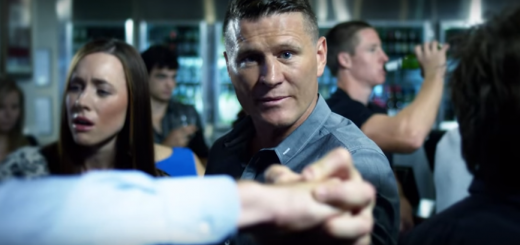Booze bans in Cairns lead to drop in crime

The partnerships, between publicans, emergency services and other stakeholders, also have been applauded for reducing alcohol-related crime across the Far North.
Under the agreements, if an offence is committed at one venue, bans of a few months or years, and up to life bans, will bar the patron from all licensed venues that have signed the accord.
Their success comes amid a world-first study by James Cook University that found 24 per cent drop in alcohol-related crime in the CBD.
Researchers collected data from charges laid by police, emergency department presentation, CCTV footage and incidents at night venues in the Cairns CBD.
The alcohol-fuelled assaults related to a simple shove to an all-out brawl.
The study sampled alcohol-related assaults over three months, from May to July, in 2010 and compared the figures with 2011.
But because of a lack of information from one agency, the comparisons were made over one month.
A total of 29 emergency service personnel, police and private security were also interviewed about crime and offence hot spots in Cairns.
While cyclone Yasi and the global financial downturn were found to be contributing factors in the drop in booze-fuelled violence, JCU research officer Boris Pointing said the success of liquor accords could also not be ignored.
“Alcohol-related violence has been subject of research and policy for the past 20 years in Australia, and worldwide, and a co-ordinated driven approach has been the only thing to have shown any effect,” he said.
“This research is certainly innovative. It hasn’t been done anywhere, not with all these agencies involved, so it’s a testament to Cairns community.”
The Cairns City Licensee Association Accord president Dominic Davies said an ongoing commitment had led to the success in Cairns which had the oldest continuous liquor accord in Queensland.
“We’ve been doing it for about 15 years, I think it’s a good forum for open communication between the police council and licensing, and we have one of the biggest impacts,” he said.
“Big differences came when they licensed security, put cameras at the doors at late night venues as well as the Cairns Regional Council putting in the CCTV cameras.”
Innisfail police Sgt Andy Campbell said the Innisfail Liquor Accord, which covers areas from Fishery Falls to Kurramine Beach, had been a success in the two years since it started.
“I think it’s great, its reduced the amount of street offences and assault on security and on police,” he said.
Tully Liquor Accord member and Tigers League Club publican Troy Jones called on greater support from the State Government to ensure continued success.
“We’re happy and the police are happy and there’s been a large drop in alcohol-related violence,” he said.
“Prior to the accord things were pretty ordinary there were your pub fights and no retribution for anything that happened.”
Mr Jones said he had petitioned the Queensland Government to implement a state-wide structure to uniform all liquor accord and wanted better protection for licensees.
“If it’s going to come to a head where someone want to sue a liquor accord, and the liquor accord don’t want to fund that, then who does?” he said.
“The government want us to have these accords to reduce crime so they should step up.”








